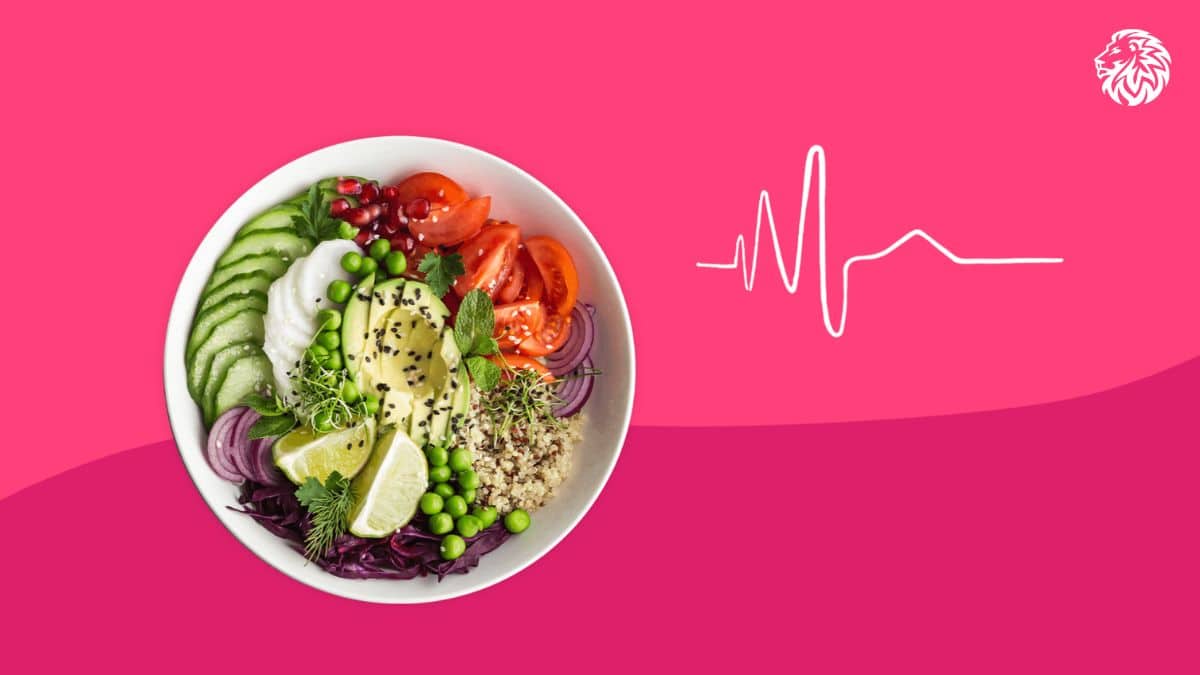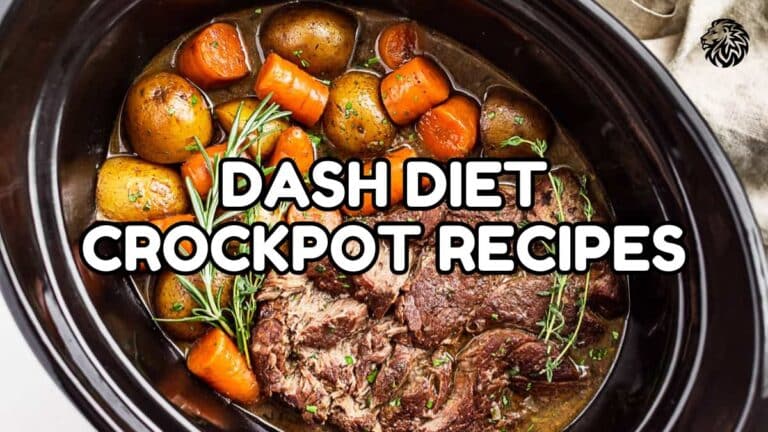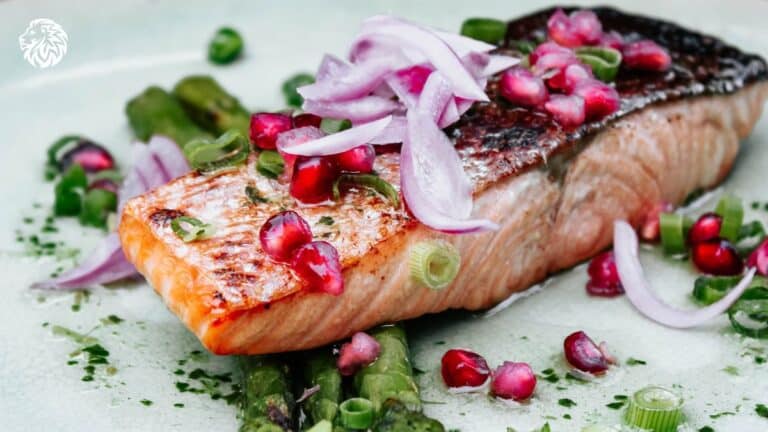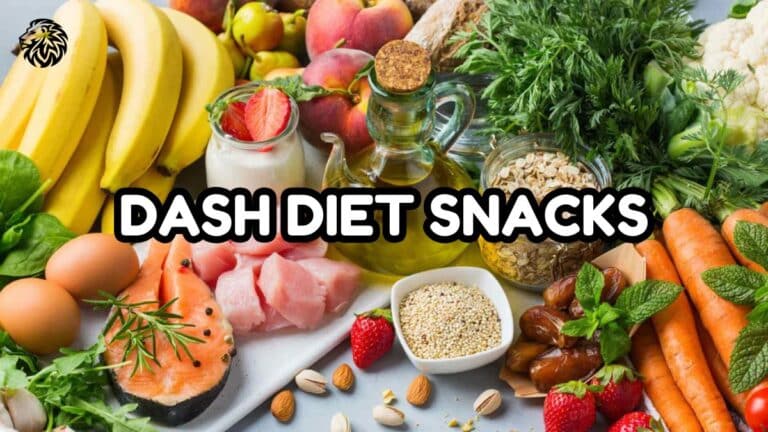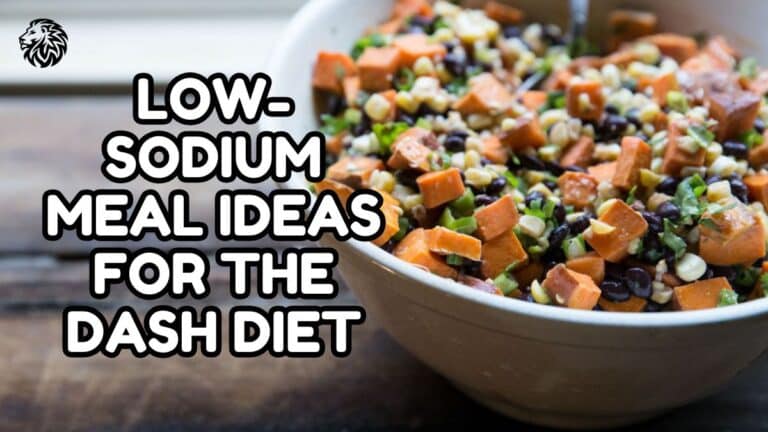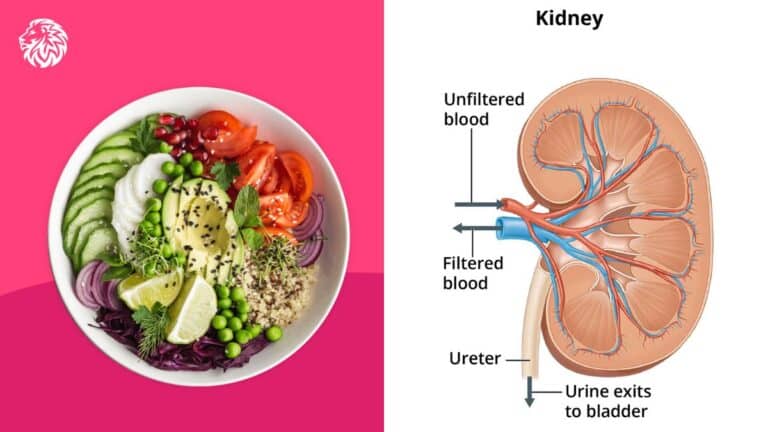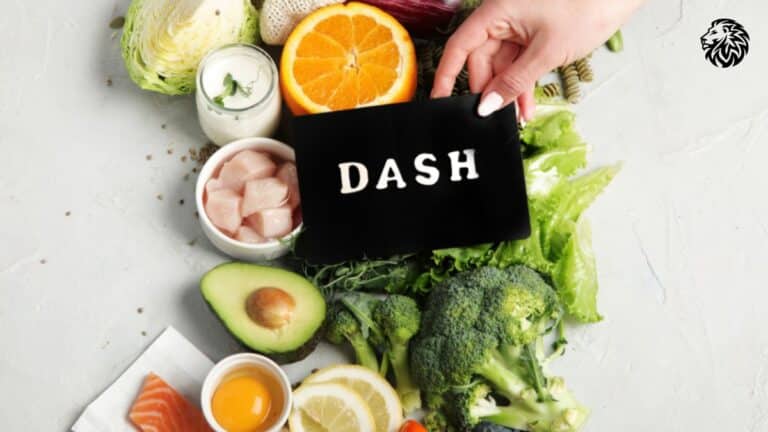High cholesterol can pose serious health risks, leading to conditions like heart disease, stroke, and atherosclerosis. Many individuals looking to lower their cholesterol levels turn to dietary solutions, and the DASH (Dietary Approaches to Stop Hypertension) diet has gained attention for its benefits. Although the DASH diet was originally designed to help reduce high blood pressure, it has also been shown to positively affect cholesterol levels. In this post, we’ll explore how the DASH diet can help manage high cholesterol and improve overall heart health.
Understanding High Cholesterol
Before we dive into the details of how the DASH diet can help, it’s important to understand the basics of cholesterol. Cholesterol is a fatty substance found in your blood. Your body needs cholesterol to build healthy cells, but having high levels can lead to plaque buildup in your arteries, increasing the risk of cardiovascular disease.
Cholesterol is typically divided into two types:
- Low-density lipoprotein (LDL): Often referred to as “bad” cholesterol, high levels of LDL can lead to the development of plaque in your arteries.
- High-density lipoprotein (HDL): Known as “good” cholesterol, HDL helps carry cholesterol away from the arteries and back to the liver, where it’s processed and eliminated from the body.
When looking at cholesterol management, the goal is to lower LDL levels and increase HDL levels. This is where the DASH diet can play a pivotal role.
What Is the DASH Diet?
The DASH diet emphasizes whole foods, particularly those rich in nutrients like potassium, calcium, and magnesium, which help regulate blood pressure. The diet focuses on fruits, vegetables, whole grains, lean proteins, and low-fat dairy products. It also encourages limiting the intake of saturated fats, cholesterol, sodium, and sweets.
Key principles of the DASH diet include:
- Increased intake of fruits and vegetables: These provide essential vitamins, minerals, and fiber, all of which are beneficial for heart health.
- Low-fat or fat-free dairy products: These supply calcium and protein without the added saturated fats found in full-fat dairy.
- Lean meats, poultry, and fish: These are good sources of protein and help you avoid the saturated fats often found in red meat.
- Nuts, seeds, and legumes: These plant-based proteins provide fiber and healthy fats, which support healthy cholesterol levels.
- Whole grains: High in fiber, whole grains help reduce LDL cholesterol and promote heart health.
How Does the DASH Diet Help Lower Cholesterol?
The DASH diet can help lower cholesterol levels through various mechanisms, most notably by emphasizing foods that are naturally low in saturated fats and high in fiber. Here’s how the key components of the diet contribute to managing high cholesterol:
- High Fiber Intake Foods high in soluble fiber, such as oats, beans, lentils, fruits, and vegetables, are central to the DASH diet. Soluble fiber binds with cholesterol in the digestive system and helps remove it from the body. As a result, it can lower LDL cholesterol levels. Studies have shown that increasing your intake of soluble fiber by 5–10 grams per day can result in a reduction of LDL cholesterol by about 5%.
- Low in Saturated and Trans Fats The DASH diet encourages the consumption of healthy fats from sources like nuts, seeds, and fish, while limiting saturated fats and trans fats. Saturated and trans fats raise LDL cholesterol and are often found in processed foods, fatty meats, and full-fat dairy. By reducing these unhealthy fats, the diet helps lower LDL levels, reducing your risk of heart disease.
- Increased Antioxidants Fruits and vegetables, which are a big part of the DASH diet, are rich in antioxidants. These substances help prevent the oxidation of LDL cholesterol, which can lead to plaque formation in the arteries. The diet’s high content of vitamins, such as vitamin C and beta-carotene, helps protect your heart and arteries from damage caused by oxidative stress.
- Plant-Based Proteins By encouraging the consumption of nuts, legumes, and seeds, the DASH diet introduces healthy plant-based proteins that are naturally cholesterol-free. These foods are also high in fiber and beneficial fats, which help lower LDL cholesterol while maintaining or even raising HDL cholesterol.
- Reduction of Sodium Intake High sodium levels are linked to high blood pressure and may also affect cholesterol levels. The DASH diet limits sodium intake to around 1,500 to 2,300 milligrams per day, which not only supports healthy blood pressure but also helps in reducing overall cardiovascular risk.
Scientific Evidence Supporting DASH for Cholesterol Management
Numerous studies have supported the benefits of the DASH diet for managing cholesterol. One study published in the journal Circulation found that participants who followed the DASH diet saw significant reductions in LDL cholesterol and improvements in heart health markers. In particular, the combination of a low-sodium DASH diet was shown to reduce LDL cholesterol by 7–10%, which is comparable to some cholesterol-lowering medications.
Additionally, the American Heart Association recommends the DASH diet as an effective tool for both lowering blood pressure and improving cholesterol levels. The focus on whole foods and balanced nutrition makes it easier to maintain long-term and provides a variety of health benefits beyond just cholesterol management.
Comparing DASH to Other Heart-Healthy Diets
You might wonder how the DASH diet compares to other heart-healthy diets, such as the Mediterranean diet, which is also praised for its cholesterol-lowering benefits. Both diets share many similarities, such as the focus on fruits, vegetables, whole grains, and healthy fats, but the DASH diet is more specific in its reduction of sodium and saturated fats.
The Mediterranean diet, however, includes more liberal use of healthy fats like olive oil and places greater emphasis on fish. Both diets have been shown to reduce cholesterol levels and improve heart health, but the DASH diet may be more appealing if you’re specifically trying to lower sodium intake and LDL cholesterol.
How to Implement the DASH Diet for Cholesterol Management
If you’re ready to adopt the DASH diet to help manage high cholesterol, here are some practical tips to get started:
- Focus on Whole Foods: Prioritize fruits, vegetables, whole grains, and lean proteins in your meals. Replace refined grains with whole grains, and opt for plant-based proteins whenever possible.
- Limit Processed Foods: Avoid foods high in sodium, added sugars, and unhealthy fats. This includes many processed snacks, baked goods, and fast foods.
- Choose Healthy Fats: Use olive oil or avocado oil for cooking, and incorporate sources of healthy fats like nuts, seeds, and fish.
- Read Labels: Pay attention to the sodium and fat content in packaged foods. Look for low-sodium or sodium-free options and check for added trans fats.
- Moderation is Key: While the DASH diet encourages healthy eating, balance is important. Enjoy occasional indulgences in moderation, but try to make heart-healthy choices most of the time.
Conclusion
The DASH diet offers a powerful approach to improving heart health and managing high cholesterol. By focusing on whole foods, reducing unhealthy fats, and increasing fiber-rich options, the diet helps lower LDL cholesterol while supporting overall cardiovascular wellness. With its well-balanced and flexible structure, the DASH diet can be easily tailored to fit individual dietary preferences and goals. If you’re looking to lower your cholesterol and improve your heart health, the DASH diet is a proven, sustainable option worth considering.
